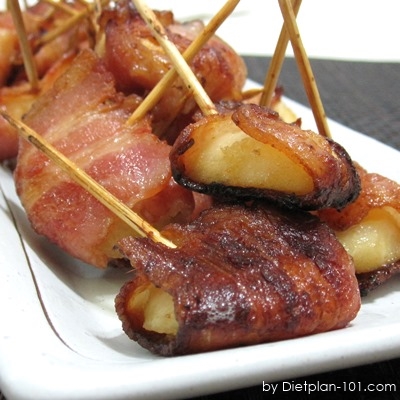The Best And Worst Diets 2018

Banned foods include wheat, dairy, vegetable oil, grains, sugar, legumes, preservatives and processed food. Included is grass-fed meat, plant foods, herbs and spices, seafood, nuts, seeds, berries, nut milks and fermented drinks such as kefir and ghee or coconut oil. Professor Clare Collins says: The fatty acid content of meat today is not like that of wild animals in paleo times. High red meat intakes increase risk for bowel cancer.
Not a diet to follow if you want to live a long life. Dr Joanna McMillan says: Lots of marketing is cashing in on this diet - paleo brownies, paleo bread and cookies are all showing up and this is clearly ridiculous. Paleo humans did not have brownies even if they are made of raw cacao, avocado and coconut oil. The 5:2 Diet. There's a danger on the that people may choose unhealthier foods on their '2' days. Get the latest news and updates emailed straight to your inbox.
By submitting your email you are agreeing to Fairfax Media's terms and conditions and privacy policy. Dieters eat whatever they want for five days per week, then for two days drop their calorie intake to 2100 kilojoules for women and 2500 kilojoules for men. McMillan says: There is some good evidence that fasting is good for us, so I don't mind this approach.
It does teach people that they can go a day on little food and that being hungry is OK. However, many people find it really hard to do in real life and usually the diet drops down to the "6 and 1", then the "7 and 0". There are also some concerns about loss of lean muscle.
Hourigan says: There is risk that on the five days people may choose more unhealthy foods and then the kilojoule and nutrient intake may not be well balanced and it may not work. It seems to suit some people but not everyone. Collins says: This gets the "diet suffering" over quickly but you will probably feel hungry on the "fast" days, where the aim is to only have about 2000 kilojoules in total. A diet restricting foods containing certain molecules that are poorly absorbed by some people and can cause them symptoms of IBS (irritable bowel syndrome).
McMillan says: This diet is being wrongly interpreted by many. It is not designed as a weight-loss diet but a treatment for IBS. In that regard it is very effective with good research behind it. However, it is not intended as a diet for life. Many healthy foods are omitted and the intention is to rebuild at least some of these back into the diet so tolerance develops and perhaps a change in gut bacteria which may be causing the problem in the first place.
Hourigan says: It is important that people do this with a dietitian and undertake the food challenges to ensure adequate nutrient intake and food variety. Collins says: Only follow this if you are intolerant of FODMAPS and see an Accredited Practising Dietitian for help. A high-protein, low-GI (glycaemic index) diet. McMillan says: This is a good well-balanced diet approach.
It suits many Aussies and has good research behind it. It's high in protein, low-GI and includes good fats. It won't suit vegans or vegetarians. Hourigan says: Includes all the core food groups. There are good support materials (recipes, meal plans) and it encourages use of some healthy oils, lean meat and alternatives, as well as plenty of vegetables and moderate amounts of low-GI carbohydrate foods. Collins says: Will work as long as you maintain an energy (kilojoule restriction).
If you have a family history of bowel cancer, do not exceed the red meat intake recommended in the Australian Dietary Guidelines (up to 455 grams of red meat per week) and limit processed meat. High-protein, low-carbohydrate diet broken into four parts or stages; attack (2-5 days), cruise (until you reach your ideal weight), consolidation (about 4 days per every ½ kilo lost), stabilisation (for life). McMillan says: Too many stages and unsubstantiated rules on this one for me.
The basic premise of lower carbs and more protein is good, but it's way too complicated. Collins says: Some people like the structure but you will get bored quickly in the initial phases, eating lean protein, oat bran and low-starch vegetables. The omission of carbohydrate increases the risk of vitamin B deficiencies. Short-term symptoms of having no carbohydrates includes bad breath (it can smell like nail polish) and headaches. Also increases your risk of constipation and gall bladder disease.
The initial weight loss on a low or no carbohydrate diet is partially due to emptying your stores of glycogen, which is stored with some water in your muscles and liver. Hourigan says: Too many restrictions and rules - unlikely to be sustainable. Omits or severely restricts several food groups which provide key nutrients.
Encourages excessive meat intake. Some products promoted as 'gluten-free' also contain high amounts of sugar. Avoids all food containing gluten. McMillan says: This is not a weight-loss diet. If you are coeliac (less than 5 per cent of the population) you need a strict gluten-free diet. There may be up to 30 per cent of people with a gluten intolerance who would benefit from low gluten. Hourigan says: Not all gluten-free foods are healthy.
0 Response to "The Best And Worst Diets 2018"
Post a Comment